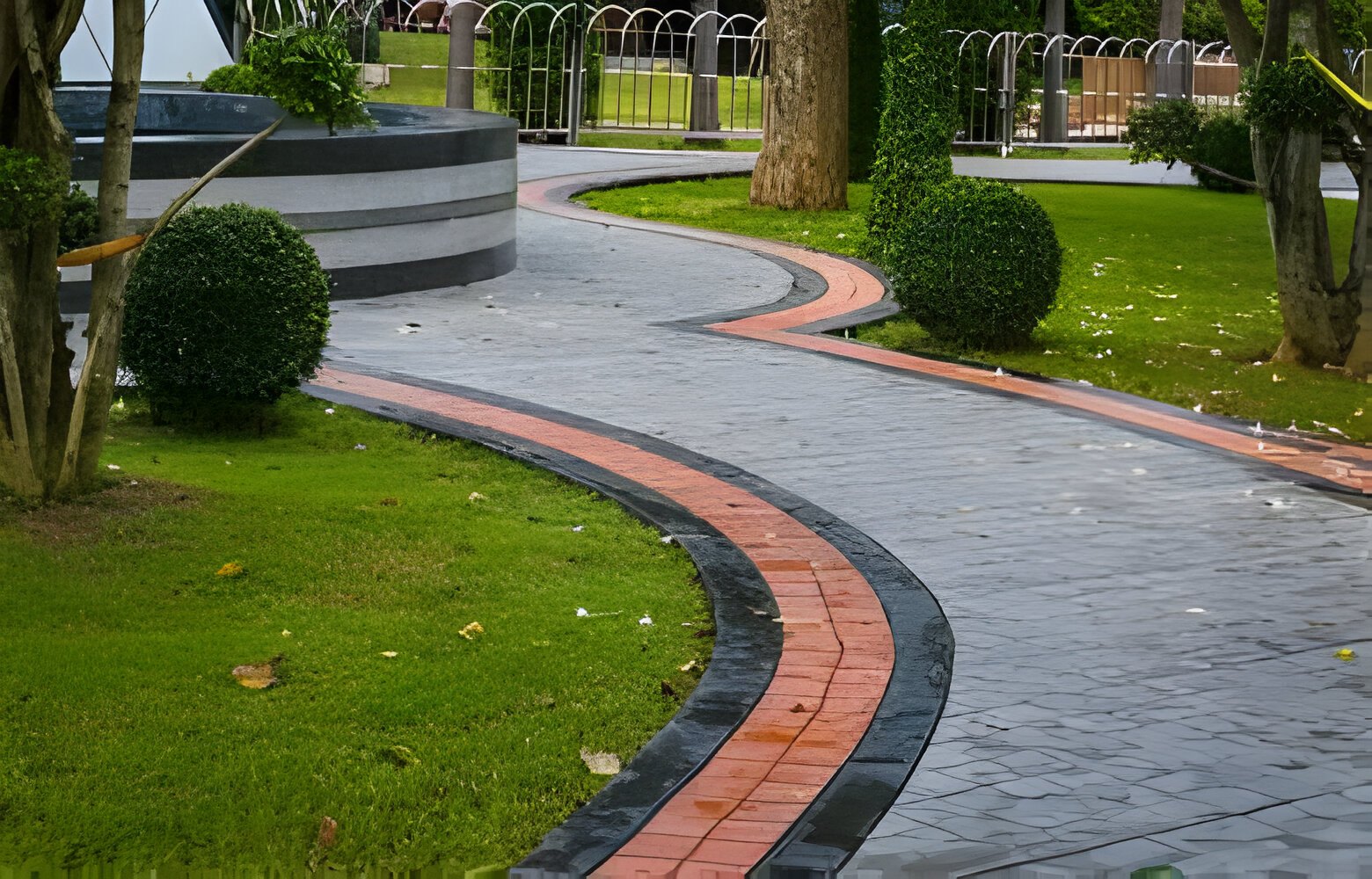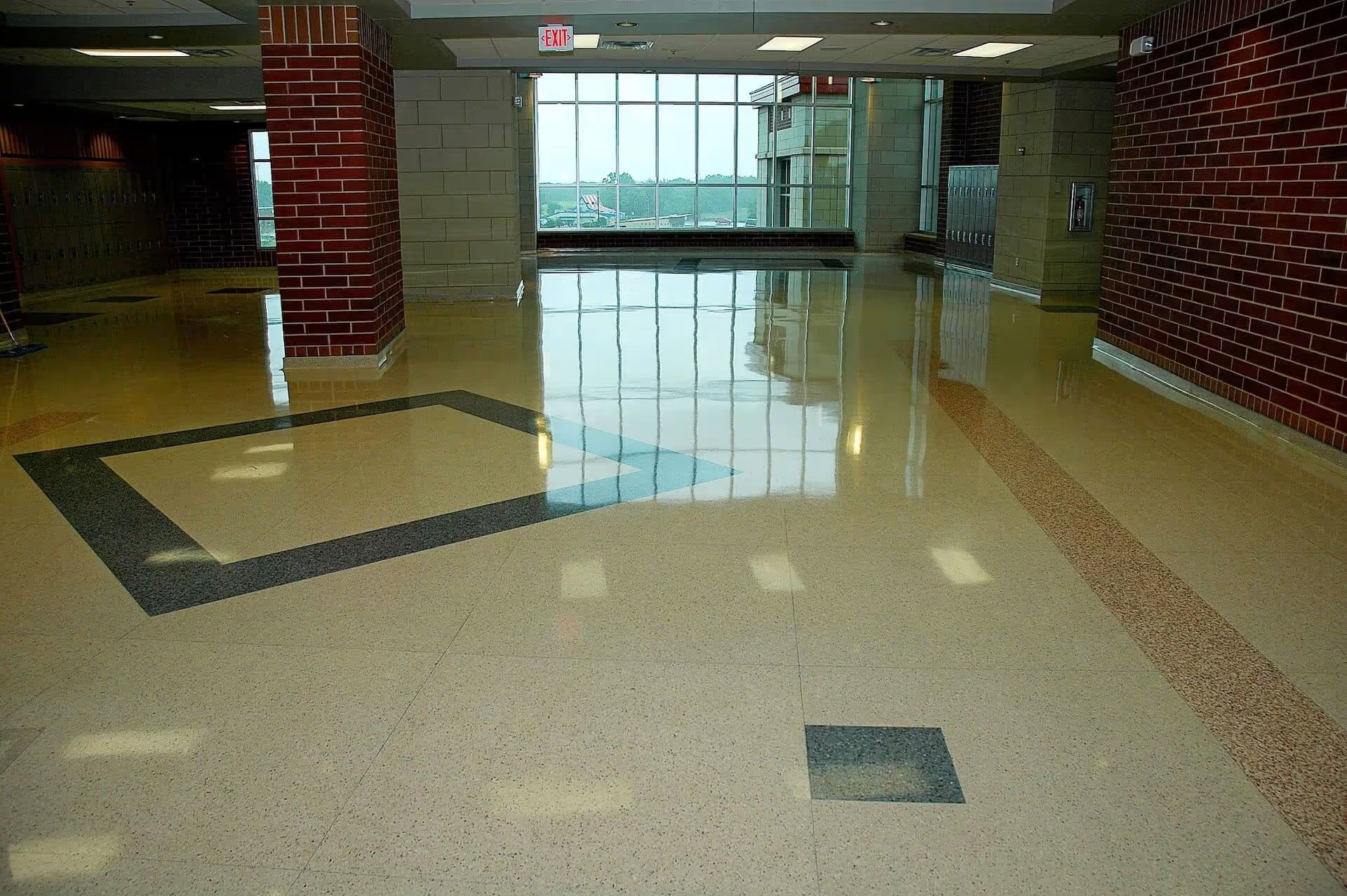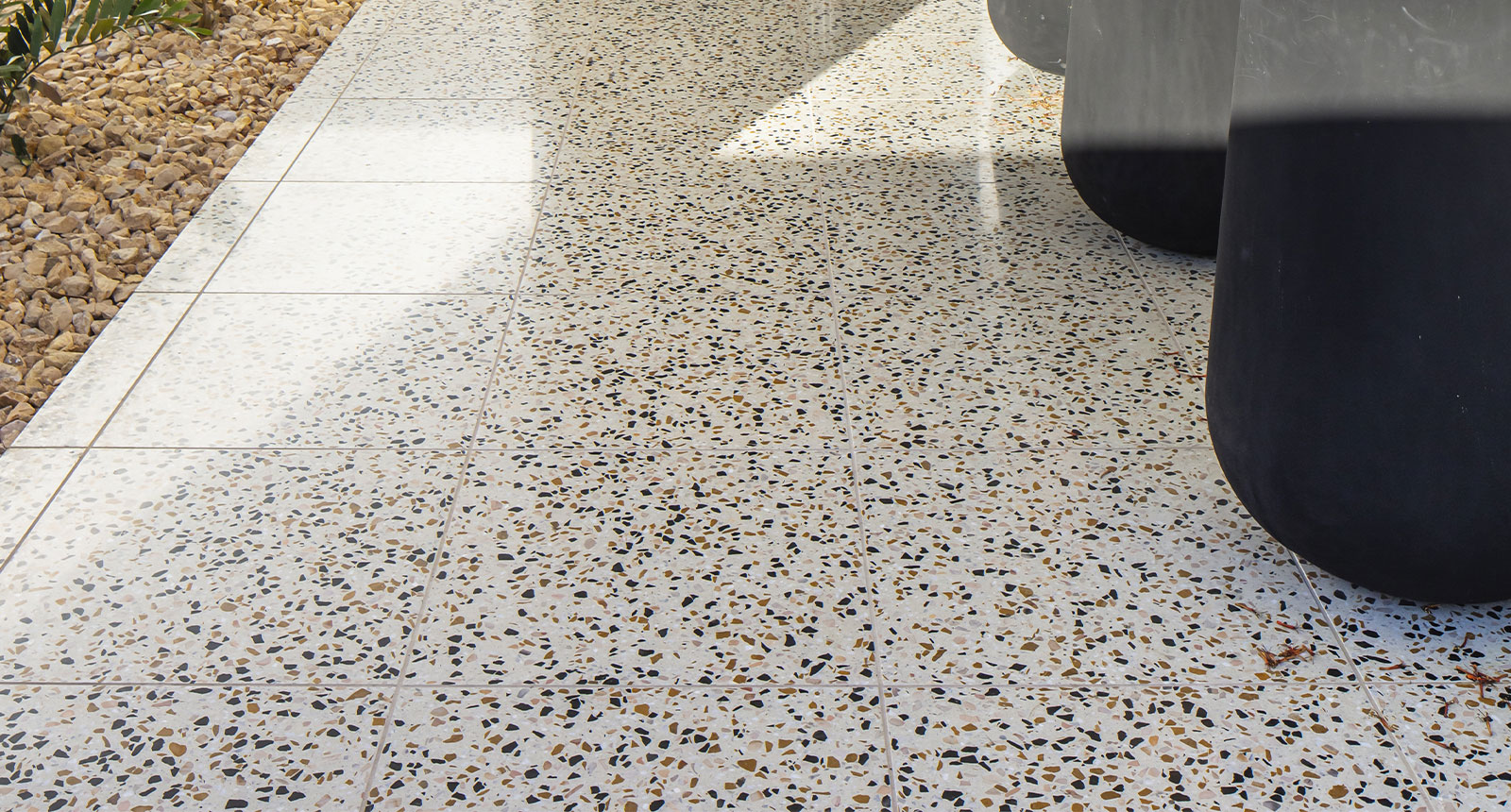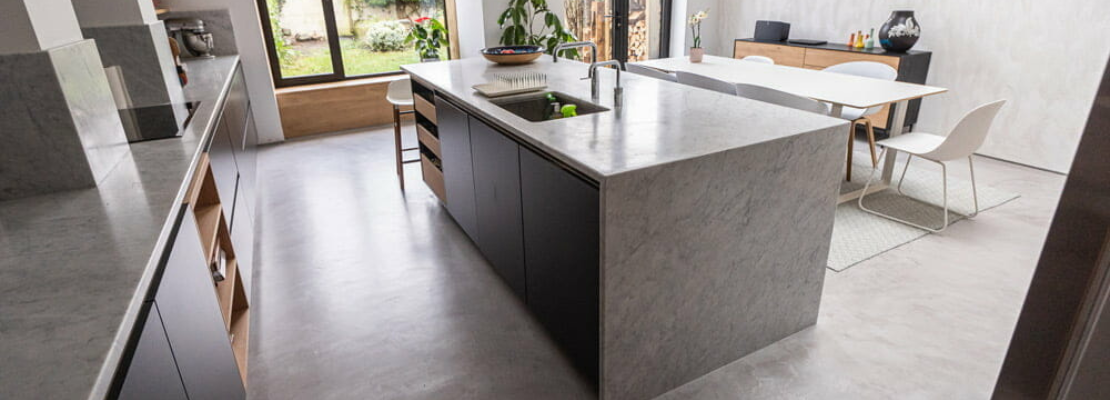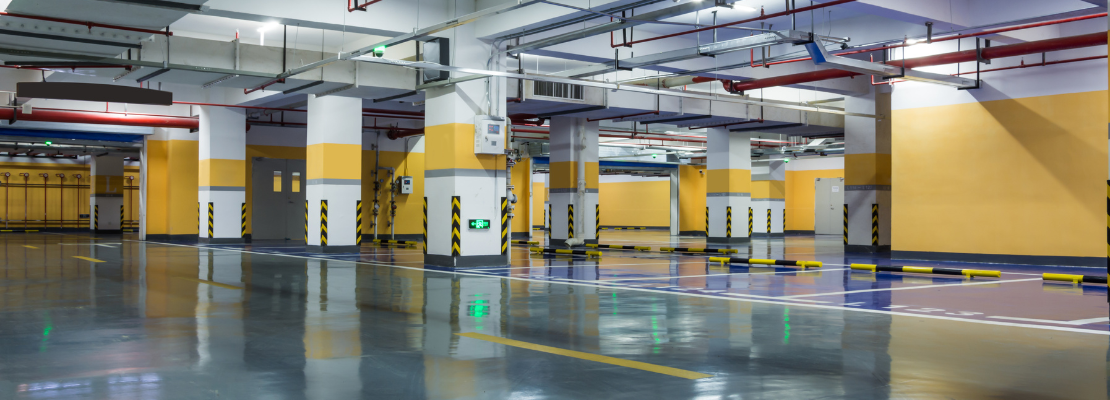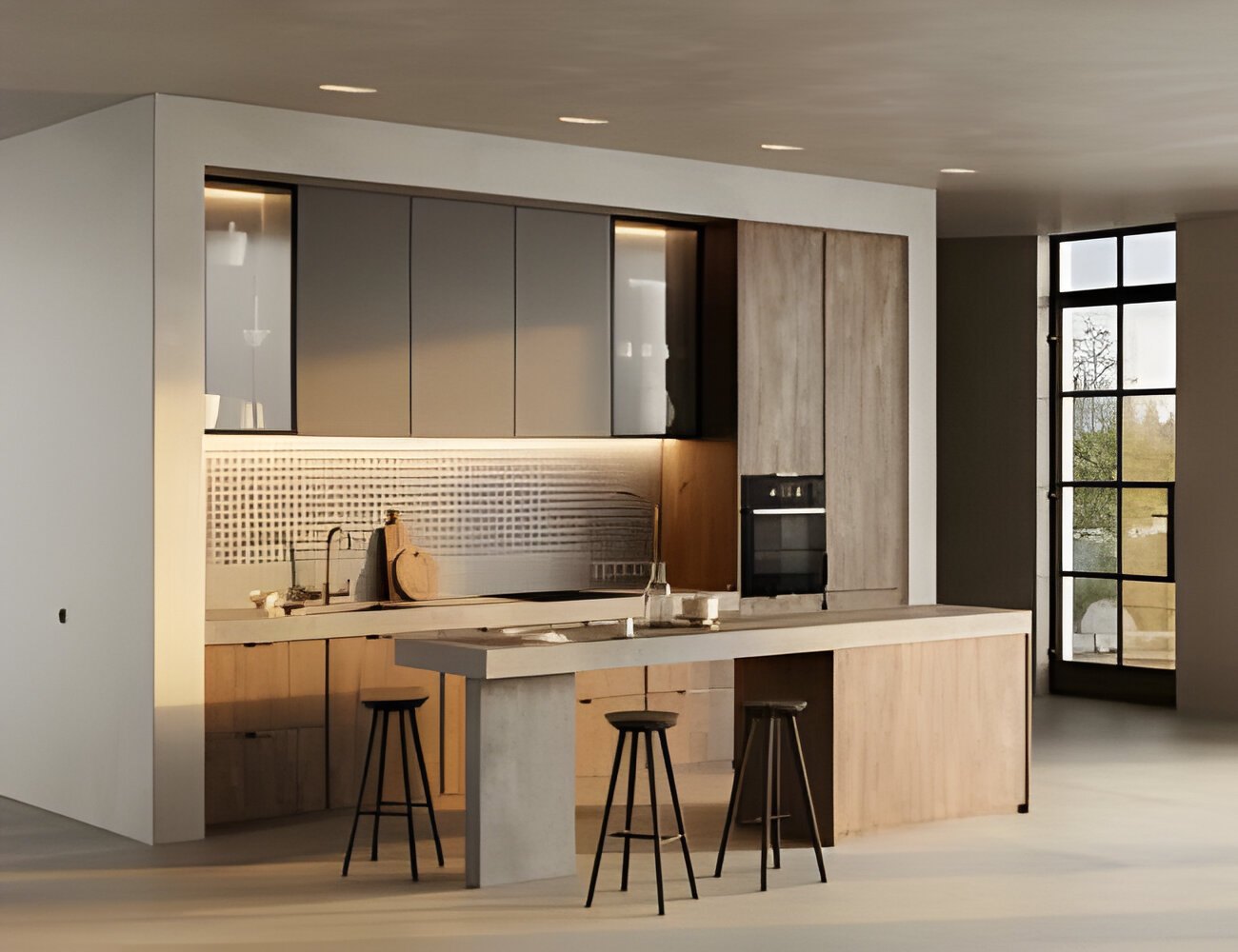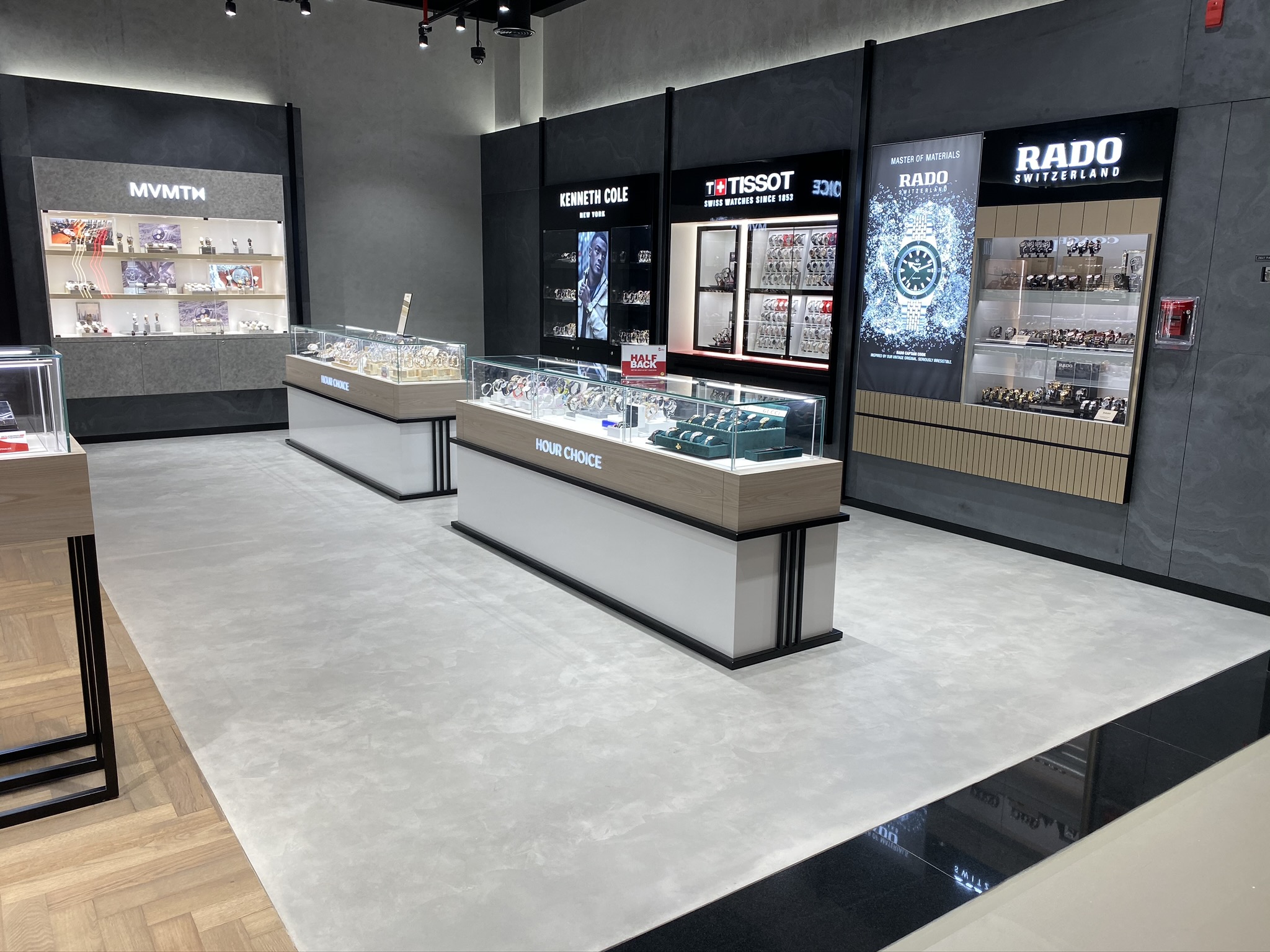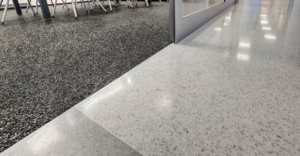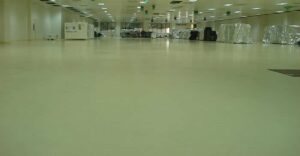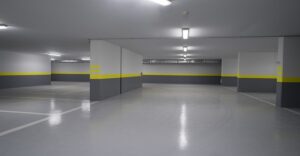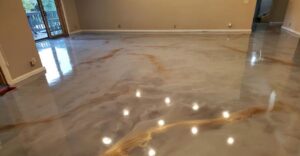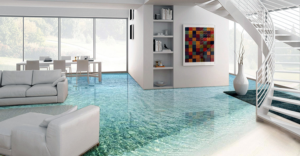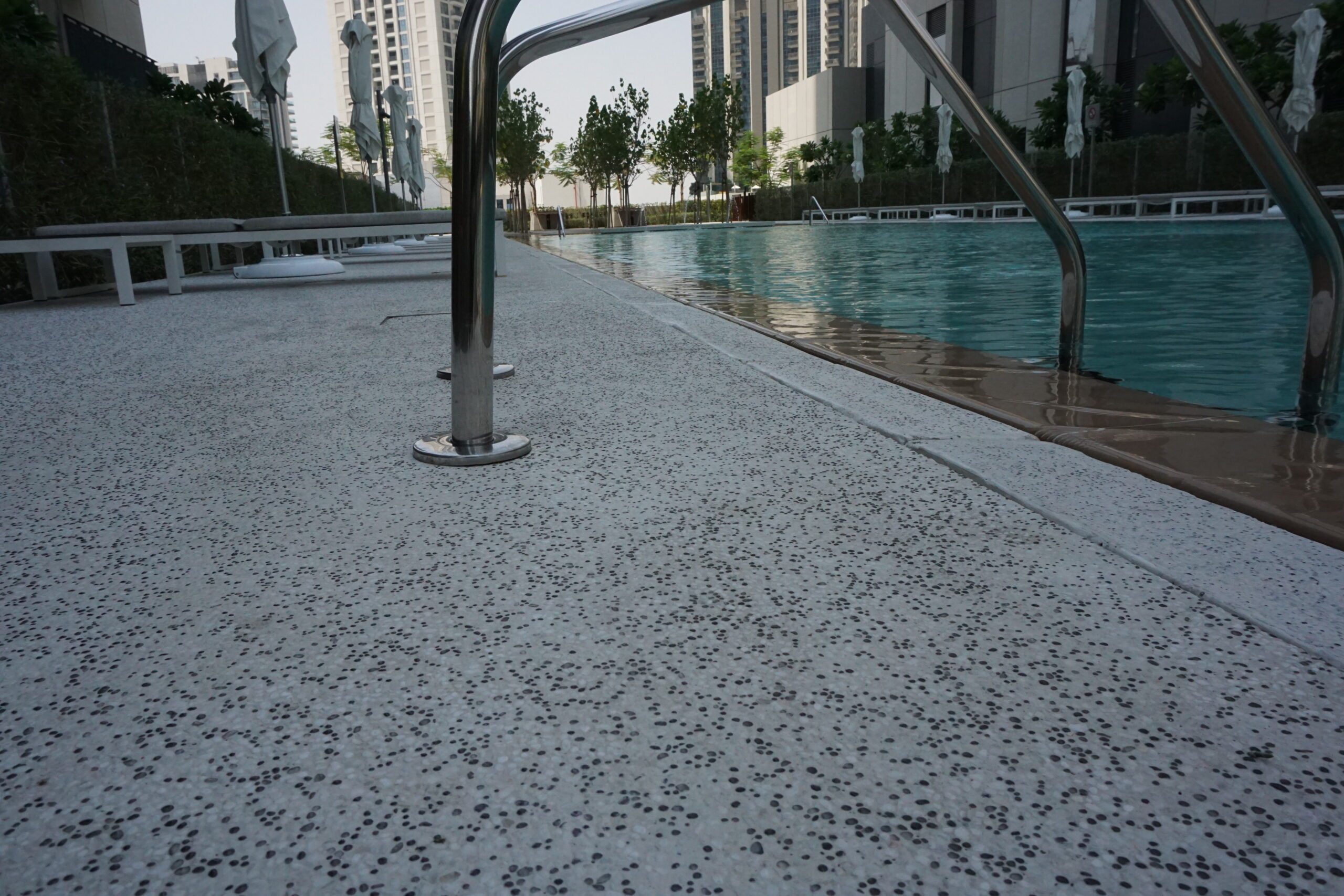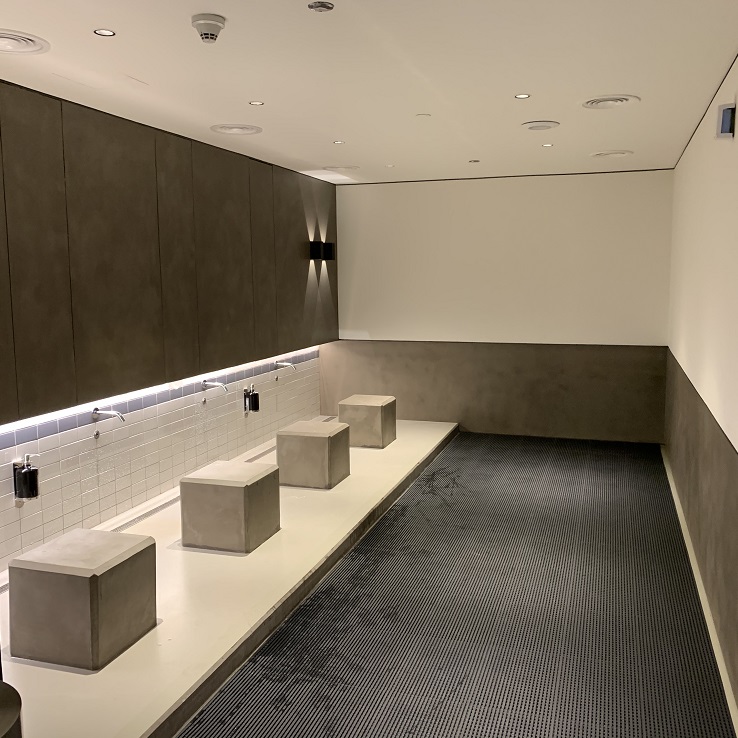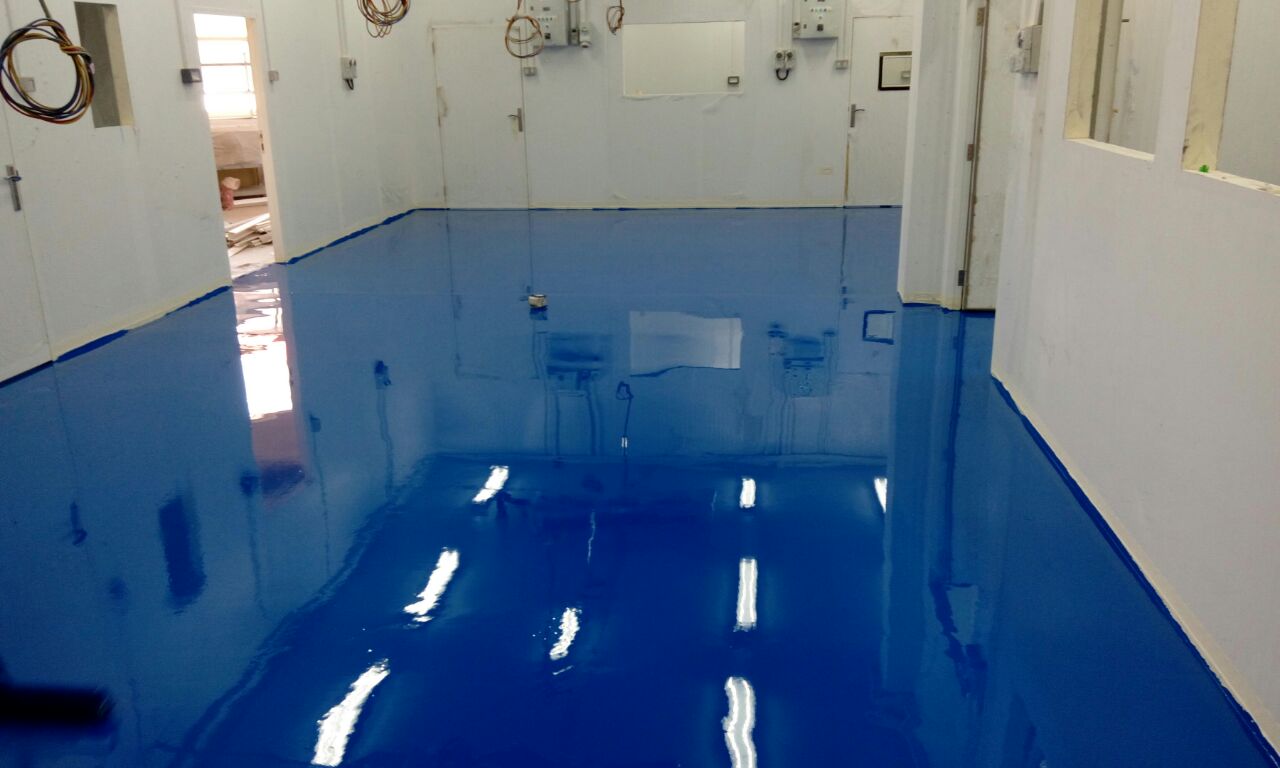Have you ever walked past a beautifully designed patio or driveway and wondered, “How do they make it look so elegant?” Well, chances are, you have been admiring stamped concrete without even knowing it! Stamped concrete is a versatile and cost-effective way to enhance the appearance of everything. You need to know about stamped concrete and how it can elevate the aesthetic appeal of your home.
Understanding Stamped Concrete
Stamped concrete is a type of decorative concrete that mimics the appearance of other materials like brick , slate, wood , stone or tile. It is done by pressing mols or stamps into freshly poured concrete to create patterns, textures, and designs. Once the concrete is cured and dried, it is coloured and sealed to improve its durability and visual appeal.
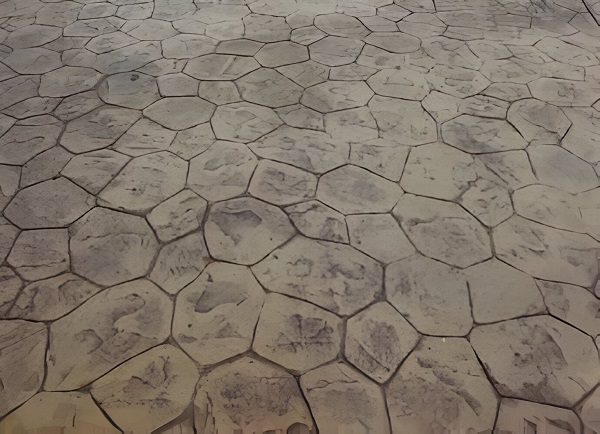
Why Choose Stamped Concrete?
Imagine having the look of expensive materials like natural stone or pavers without breaking the bank. That is one of the main benefits of tamped concrete – it offers the aesthetic appeal of high-end materials at a fraction of the cost. Additionally, stamped concrete is highly customizable, allowing you to choose from a wide range of patterns, colors, and textures to suit your personal style and preferences.
Like any construction material, stamped concrete has its advantages and disadvantages. Let us take a closer look :
Advantages of Stamped Countertop
- Versatility in design: Stamped concrete offers endless design possibilities, allowing you to customize your space to suit your style.
- Cost-effective: Compared to natural stone or pavers, stamped concrete is often more affordable, making it an attractive option for budget-conscious homeowners.
- Durability: When properly installed and maintained, stamped concrete can withstand heavy foot traffic, UV exposure, and inclement weather conditions.
- Low maintenance: Unlike traditional paving materials, stamped concrete requires minimal upkeep. Routine cleaning and sealing are typically all that is needed to keep it looking its best.
Disadvantages of Stamped Concrete
- Potential for cracking: While stamped concrete is durable, it is not immune to cracking, especially if the base isn’t properly prepared or if the concrete undergoes excessive stress.
- Limited lifespan: While stamped concrete can last for many years with proper care, it may not have the longevity of natural stone or brick.
- Installation challenges: Achieving a flawless stamped concrete surface requires skill and expertise. Improper installation can result in uneven textures or premature deterioration.
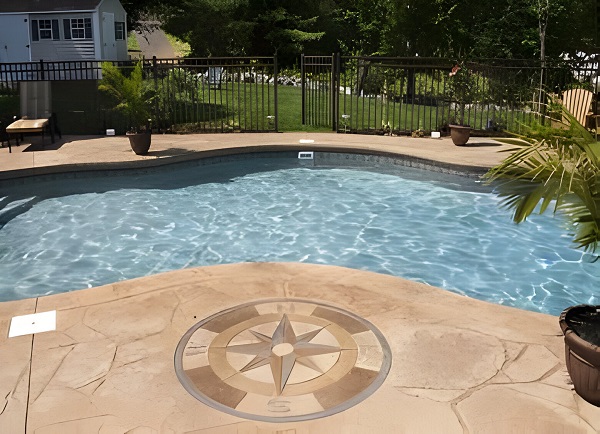
How Does It Compare to Stone or Other Materials?
Stamped concrete offers a compelling alternative to natural stone, brick, or wood. While each material has its own unique characteristics, stamped concrete holds its own in terms of versatility affordability, and durability. Plus, with advancements in stamping techniques and coloring agents, stamped concrete can closely replicate the look and feel of natural materials, often at a fraction of the cost.
Frequently Asked Questions Related to Stamped Concrete
1. Does Stamped Concrete Crack?
One of the most common questions about stamped concrete is whether it cracks. The short answer is yes, it can. However, proper installation techniques, including adequate base preparation, reinforcement, and control joints, can minimize the risk of cracking. Additionally, routine maintenance, such as sealing the surface regularly, can help prolong the life of your stamped concrete and prevent cracking.
2. How Long Does Stamped Concrete Last?
The life span of stamped concrete depends on various factors, including the quality of the installation, the climate, and the level of maintenance. On average , well-maintained stamped concrete can last 20 to 30 years or more.
3. How Do I Hire the Right Contractor to Install My Stamped Concrete?
Choosing the right contractor is crucial to the success of your stamped concrete project. Here are some tips to help you find the right one ? Take the time to research local contractors and read reviews from past customers. Request references from the contractors to compare prices and services. Ensure that the contractor is licensed, insured, and experienced in stamped concrete installation.
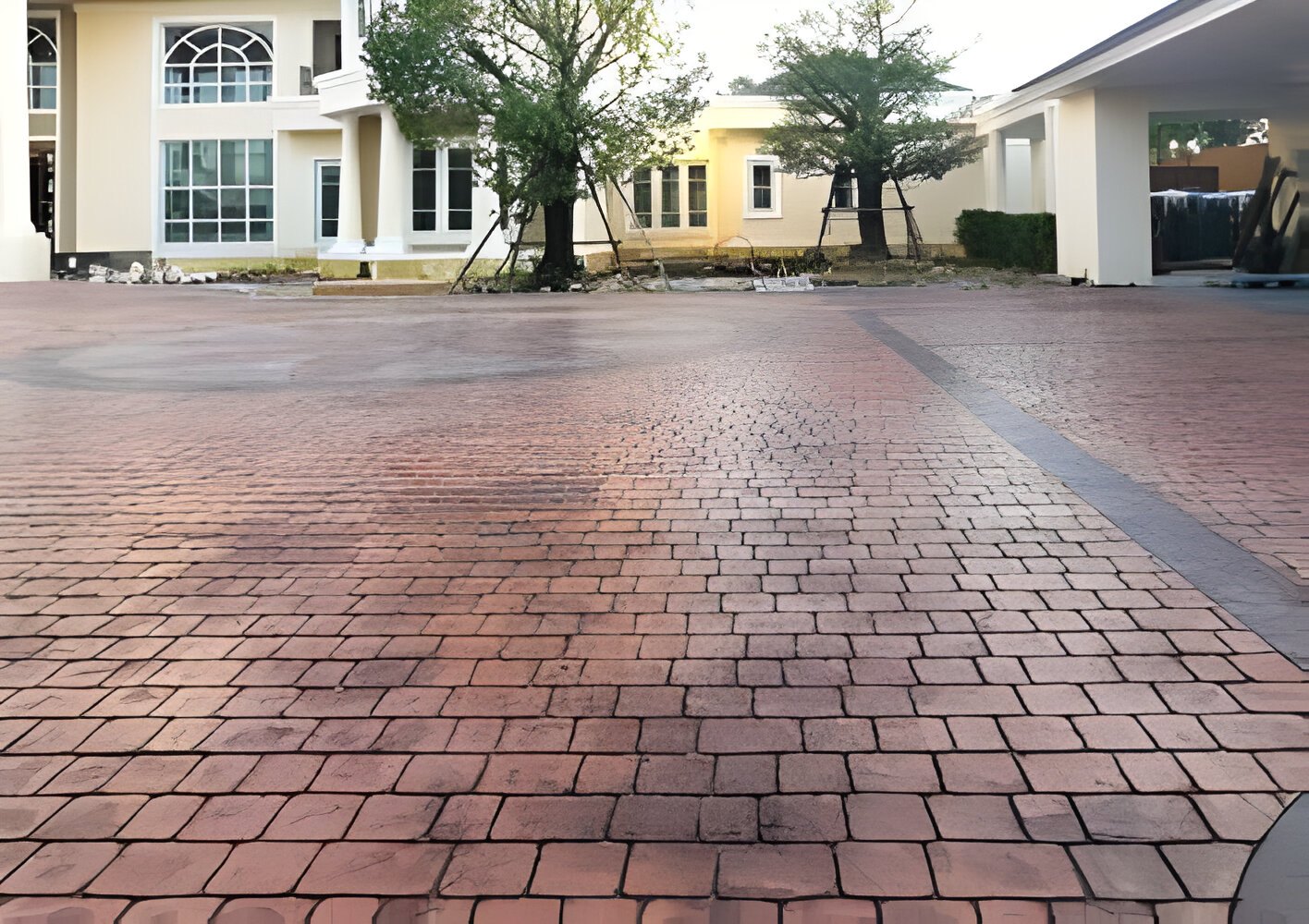
Contact SDS For Decorative Stamped Concrete
Now that we have shared with you everything about stamped concrete , it is time your outdoor spaces with style and sophistication. Whether you are looking to enhance your patio, driveway, or pool deck, stamped concrete offers endless design possibilities, durability , and cost effectiveness. So why wait ? Take your outdoor living experience to the next level with stamped concrete today ! At SDS we specialize in delivering high-quality stamped concrete solutions and other decorative flooring options that elevate the beauty and functionality of your home. Our team of experienced professionals is dedicated to exceeding your expectations and bringing your vision to life. Contact us today to schedule a consultation and explore the endless possibilities of stamped concrete for your home.
Ready to transform your outdoor space with stamped concrete? Contact SDS today to learn more about our stamped concrete services and schedule a consultation. Let us help you turn your vision into reality.
